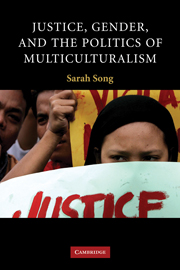5 - Tribal sovereignty and the Santa Clara Pueblo case
Published online by Cambridge University Press: 22 September 2009
Summary
In 1941, Julia Martinez, a member of the Santa Clara Pueblo, married a Navajo man. The couple and their eight children lived on the Santa Clara Reservation in northern New Mexico, speaking Tewa, the traditional language of the tribe, and practicing Pueblo religion and customs. In 1939, the Santa Clara Pueblo had changed its membership rules in an ordinance. It declared that the children of Santa Clara women who married outside the tribe could not be members, while children of Santa Clara men who married out would be granted membership. The Tribal Council reaffirmed this ordinance in a resolution passed in 1944. In the 1970s, Julia Martinez and her daughter Audrey tried to persuade the tribe to change its membership rules, and when their efforts met without success, they filed a lawsuit under the Indian Civil Rights Act (ICRA). What was at stake for the Martinez family was not only symbolic affirmation as tribal members but also the rights and benefits of tribal membership, including voting rights, land assignments, and housing, education, and healthcare benefits. This case raises questions about the proper basis and limits of tribal sovereignty.
Prominent multiculturalists have endorsed the US Supreme Court's decision to defer to tribal sovereignty over the appeals of some members for intervention. For instance, on Kymlicka's argument for group rights, there is relatively little scope for legitimate coercive interference by democratic states into minority nations, including Native American tribes.
- Type
- Chapter
- Information
- Justice, Gender, and the Politics of Multiculturalism , pp. 114 - 141Publisher: Cambridge University PressPrint publication year: 2007



